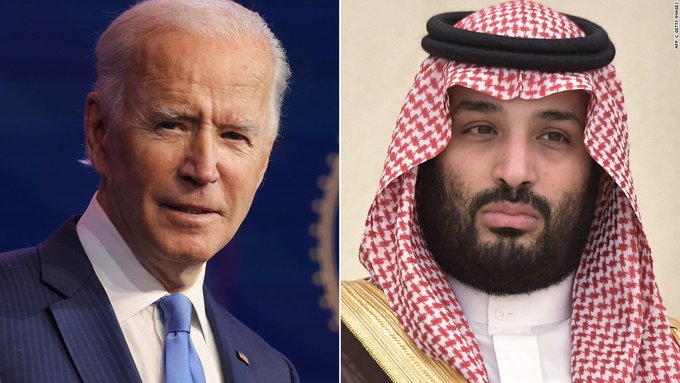Oil for security: the US-Saudi coalition faces challenges

The US-Saudi alliance, which relied on the security-for-oil equation for decades, is facing its most serious challenges in light of the severe tension in the relations between the two countries.
The Quincy International Institute for Studies highlighted that the Saudi-led OPEC’s contempt for the US administration did what the war in Yemen and the murder of journalist Jamal Khashoggi could not.
The decision by OPEC to cut oil production infuriated members of the US Congress enough to call for the dissolution of the entire relationship with Saudi Arabia.
The OPEC+ decision to cut oil production by 2 million barrels yesterday was described as a “blow against (US President Joe) Biden”, and members on both sides of Congress were furious.
But three members of the House of Representatives took it one step further, introducing a bill that would remove all US forces, weapons, and missile defence systems from the kingdom.
A statement by the three deputies considered that the significant reduction made by Saudi Arabia in oil production is a hostile act against the United States and a clear indication that Riyadh chose to side with Russia in its war against Ukraine.
The announcement by the Organization of the Petroleum Exporting Countries (OPEC) to cut production by two million barrels per day starting next November led to a state of commotion in Washington.
Congressional representatives and politicians considered the decision a severe insult from Saudi Arabia to Biden after he visited Riyadh last July.
Before the end of World War II, specifically on February 14, 1945, US President Roosevelt met on board a warship in the Suez Canal with King Abdulaziz bin Saud to inaugurate a partnership between the two countries based on the equation “oil for security”.
Accordingly, Riyadh gave American companies priority in oil exploration and extraction in exchange for obtaining American protection that ensures security for Saudi Arabia from various threats.
With the outbreak of the Iranian revolution, which adopted the export of the revolution to neighbouring countries, the Soviet invasion of Afghanistan in 1979, and their approach to the warm waters of the Gulf, US President Carter issued his principle, which stipulated a pledge to defend the oil fields in the Gulf against any external aggression.
And then, Washington and Riyadh cooperated to drain the Russian bear in Afghanistan. They also supported Iraq in its war against Iran from 1980-1988 – although Washington was secretly keen to drain Iraq and Iran of each other -.
Likewise, President Bush Sr. mobilized half a million American soldiers as part of an international coalition to defend Saudi Arabia against the Iraqi army and restore Kuwait in 1991.
The US-Saudi alliance was also able to absorb the repercussions of the participation of 15 Saudis in the events of September 2001 and to enhance security cooperation between the two countries under the banner of combating terrorism.
During the last decade, the American positions that angered Riyadh continued, beginning with Obama’s call for Egyptian President Mubarak to step down following the outbreak of the January 2011 demonstrations.
Riyadh saw that Washington quickly abandoned its closest ally in the Arab world. Then came Obama’s signing of the nuclear agreement with Iran in 2015 and his adoption of a policy focusing on Asia. Again, Riyadh saw that Washington was abandoning it in favour of Tehran.
Then came the Trump era, which witnessed the withdrawal from the nuclear agreement with Iran, and the resumption of offensive arms deals to Saudi Arabia to support them in the Yemen war, which was reflected in the rapprochement of the two countries until receiving Trump in Riyadh in 2017 with a warm welcome on his first foreign visit after his election.
But Trump’s failure to respond to the attack on Aramco’s oil fields and refineries in September 2019 made Riyadh feel insecure, and the umbrella of American protection has become tattered.
At the beginning of his term, Biden announced his refusal to communicate directly with the Saudi crown prince to declassify the American intelligence report on the killing of journalist Jamal Khashoggi, which accuses Prince Mohammed bin Salman of involvement in the incident.
Washington has also repeatedly condemned the human rights situation in Saudi Arabia. Finally, the unilateral American withdrawal from Afghanistan, and the resumption of negotiations on the nuclear file with Iran, bothered Riyadh.
Riyadh recently sent several messages indicating its displeasure with the Biden administration’s handling of the Saudi-US relations file, which was evident in the announcement of negotiations with China over selling oil in yuan instead of dollars, and Saudi Arabia’s avoidance of condemning the Russian invasion of Ukraine.
Riyadh quickly played a pivotal role in the recent oil production cut, which was seen as an insult and humiliation for Biden ahead of the upcoming congressional elections.





